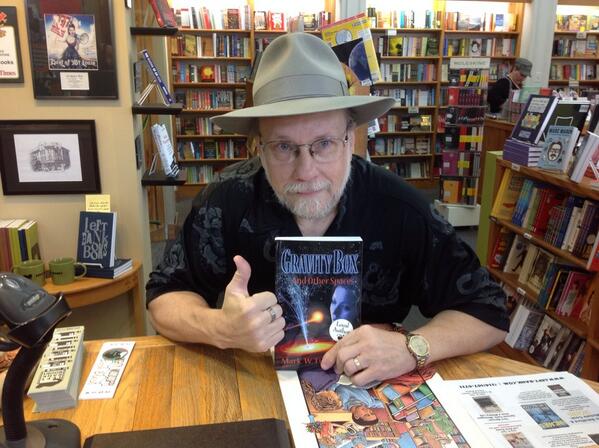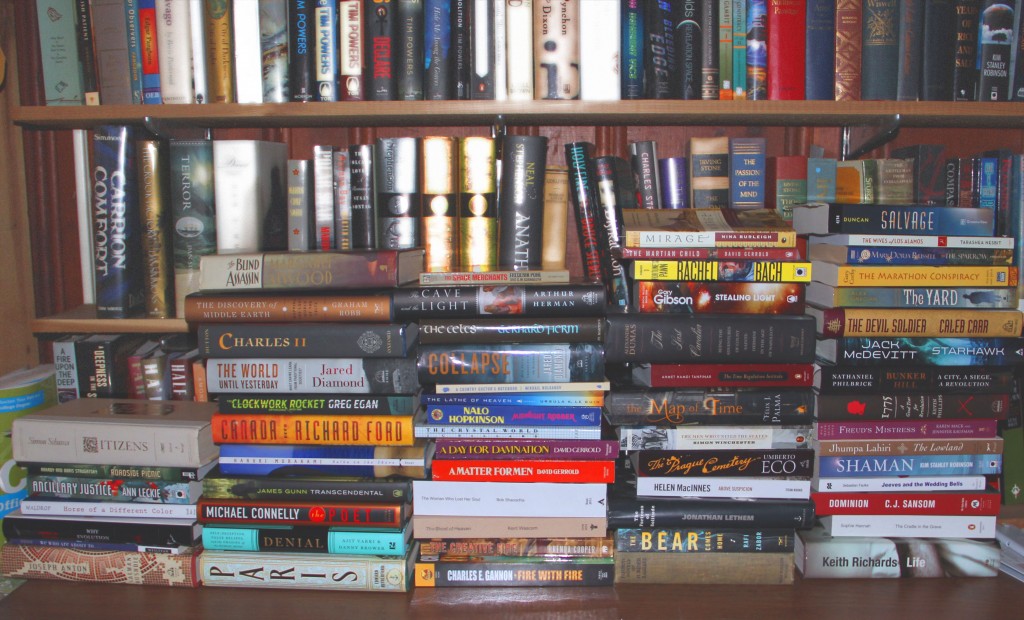A couple of decades of online conversation has revealed many thing about our culture, about our selves. One is how little most of us seem to consider what we say before we say it.
I recently saw the term “flaming” used in a description of certain problematic exchanges in a forum I till recently frequented. I’m sure it’s still in current usage, but I hadn’t thought of the term in some time because I long ago vacated forums and chatrooms where this was a common problem. One of the more congenial things about FaceBook is that while flaming (and trolling and all such related hate-baiting tactics) still happens, users aren’t locked into the thread where it occurs. With multiple conversations going on all the time among many different arrangements of “friends” it is not a problem requiring something like a nuclear option to deal with. You just stop commenting on a poisoned thread and move over to a new one, often with the same people. True, the flamer might move with you, but the mix-and-match nature of FaceBook makes this less convenient.
Unlike a dedicated forum with a regular membership, etc.
You can find one, filled with like minds and congenial conversation, which can run on for some time till one day someone you thought you “knew” (solely from the interactions in the forum) says something wholly baffling and even hurtful, but certainly unexpected and baiting. Or a new member shows up and after a few days or weeks turns into an aspersion-casting, logic-defying, unreasonable twit. Such people indulge, usually, in the ancient schoolyard game of “let’s you and him fight.” They get everyone stirred up, create a toxic situation, and then, often, leave. “My work is done here.” People who were once friends, or at least friendly, are now on opposite sides of issues they had no hand in either creating or aggravating. Mistrust, defensiveness, and a new attention to certain words and phrases dominates the forum and arguments flare at the drop of a phrase.
Partly, it seems to me, this is one of the unfortunate factors in what we know to be human nature. Some people are only enjoying themselves when they create a mess. In my opinion, it’s the same kind of mentality that gets off on obscene graffiti, incendiary phone calls to talk shows, or gossips who spread rumors about people they hardly know. For such people communication was invented in order to sow discord. People getting along nicely is something they cannot abide because where’s the fun in that? In a way, this is related to the more refined pleasure of honest debate and philosophical enquiry, wherein positions are taken and defended in order to find a higher accord. But it has the same relationship to this as Tae Kwon Do has to a drunken fist fight in a bar.
Another part of this, however, is less perverse but more difficult to define and that has to do with the difference between written discourse and casual conversation. Two people sitting across from each other—at a barbecue, having a beer, over dinner, what have you—just talking do so within a set of protocols that, when transferred to the written word, are at best “loose.” We rely on a whole suite of cues that have nothing to do with the actual words we use. Tone, inflection, regional accent, body language, gestures, facial expression, and the all-important momentum of the exchange work to add multiple players of interpretive possibility to the dialogue only the better fiction writers seem able to encode in words on the page. They manage this by careful attention to which words and how they are placed within a scene and contextualized according to the emotional framework set up.
Which means that great care is taken to achieve a particular effect.
Not something the vast majority of people “chatting” in forums, online, get anywhere near doing.
Instead, we type our words and send them out knowing in our own heads what we meant and unaware that without the full holistic surround of an actual face-to-face conversation such intent is completely absent and the person reading them may have a completely different set of circumstances dictating how those words will be interpreted.
It’s amazing anything meaningful gets transmitted and received at all. But it does, because many of us, maybe even most of us, learn over time how to write a dialogue, which is a different thing than when we’re talking.
Some never figure out the difference.
Hence the thoughtless ingredient thrown innocently into a stew stirred by many hands, resulting in a soured moil of potential vitriol.
The great essayists make it look easy. Just write, like you’re talking to someone, and your meaning will be conveyed. Right. Of course it will. The reason we regard great essayists as great is that they make it look so easy. We can read it and understand it, it ought therefore to be within our power to do the same thing. It’s just talking. Do that all the time.
But putting words down is very different than speaking them. For one, they remain there, precisely as written, to be gone over again and again, to be reinterpreted, again and again, to be copied and pasted in responses that can be shoved back in our faces angrily. Embarrassment, defensiveness, or egotistical refusals to understand why what we said wasn’t understood for what we meant, all this can feed into an impossible collection of antiphonal postings that quickly have nothing to do with the original topic and are now about hurt feelings, impatience, and perhaps even past events that have nothing to do with the present “conversation.”
Letter writing is even more considered than most of what passes every hour on the internet as epistolary exchanges. Until mailed, the letter is not finished. It can be reread, reconsidered, reviewed. It can be thrown away and begun again.
Theoretically, so can something about to be posted to the internet, but it would seem we treat it more like that face-to-face at the picnic than as letter-writing. So we dash it off and hit SEND and then what happens happens.
Unfortunately, those words, unless deleted by an administrator, are always there, unlike the unfortunate way you said something at the picnic, which can vanish from foggy memory as soon as the topic changes. People looking for something to focus on can find them and use them against you. You were not, no matter what you thought, “just talking.”
Still, even this is instructive for those who will be bothered to learn. A thoughtful reconsideration of how we say things reveals how much of our conversation is less actual information than ritual. It could potentially teach us how to say things we really want said instead of just mouthing sounds that are the conversational equivalent of greeting cards. Understanding the host of assumptions supporting a sentence would be a very good thing for us to learn. Because even at the barbecue sometimes someone says something so void of any real substance and yet so potentially inflammatory that you know the speaker really doesn’t have a clue what that sentence really means.
Or maybe they do. And that is instructive as well. In either case, we should consider our response…carefully.



